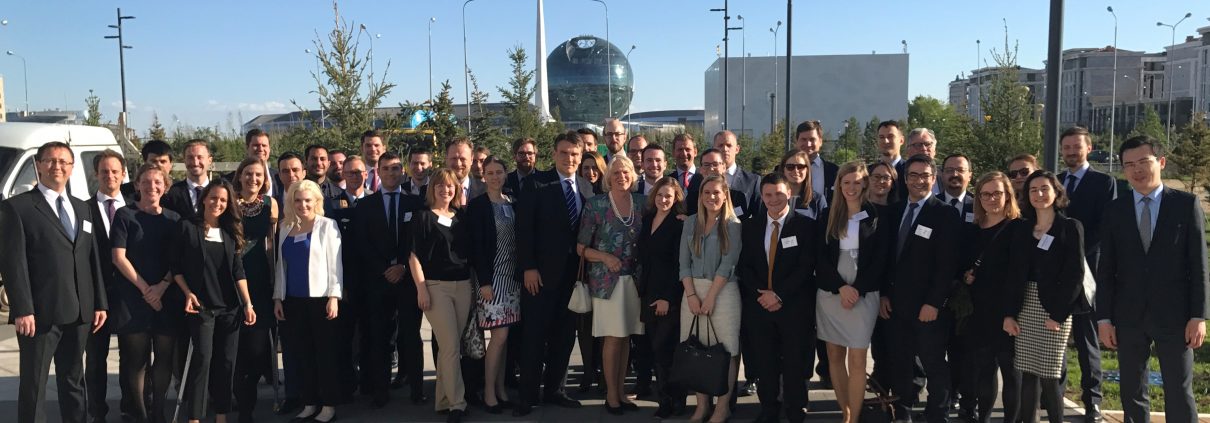XVI European-American Young Leaders Conference
Astana, Kazakhstan
May 28 to June 1, 2017
42 Young Leaders from 18 nations traveled to central Asia to get to know a country in economic emergence that proved its will and capacity for economic modernization with the direction of the global exhibition Expo 2017.
At dinner in the German Ambassador’s residence, Astana’s impressive modern architecture was bathed in evening sunlight. Just 20 years old, the city of Astana rises from the middle of the seemingly endless steppe of Kazakhstan, the ninth largest country by area, with the longest land border to Russia (a length about equal to the distance from London to New York). The Ambassador described Kazakhstan as a pillar of stability in an unquiet region.
The role that Kazakhstan embraces as a bridge in Eurasia became tangible at the country’s official celebration of Europe Day, where the Young Leaders were honorary guests. With multilingual moderation, works from a dozen European composers and matching photo collages, the Kazakhs celebrated the European diversity that attracts them.
Admittedly, there is much progress to be made in Kazakhstan before political diversity or even freedom is achieved. The cult of personality around President Nursultan Nazarbayev, in office almost three decades, is omnipresent. In a conversation with the deputy foreign minister, he presented the prospect that by 2020, the rights of Parliament should be strengthened, to allow for greater pluralism.
Alongside the theme of central Asia, the Young Leaders confronted in their working groups the question of how the liberal world order can be strengthened in a time of a weakening Europe and a USA tending towards isolation. The answer was predominately seen to be a return to value-based transatlantic partnership and a swift renunciation of President Trump’s transactional foreign policy.
The 2017 Young Leaders got to know one of the most diverse and most dynamically developing countries of central Asia, that even during the Cold War was thought of as a “Soviet dumping ground.” Atomic weapons were stored here, nuclear tests were conducted, nuclear waste was deposited, there were prison labor camps throughout the vast Kazakh steppe and beyond that, 130 minority groups were colonized in the time of Stalin. Kazakhstan is of key importance to the region and beyond due to its geostrategic location, economic strength, and stability. Only now, through the skillful politics of President Nazarbayev, has Kazakhstan been able to loosen its ties to Russia, noticeable by the introduction plan of the Latin script (as opposed to Cyrillic) and the increased use of the Kazakh language instead of Russian. Global Brides will continue to focus on central Asia in accordance with our motto: “Wir fahren hin.”

